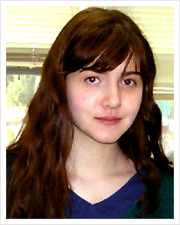 |
 |
How I Became Educated about Community College
|
|
By Alex Holachek
|
 When I was little, I was never really troubled by my parents’ threats that they were going to sell me to the circus if I didn’t try my best in school. I didn’t think they were serious, and plus, to a fourth-grader, learning the art of trapeze sounded like a much better use of time than learning the art of long division. A couple of years later, though, a more horrifying prospect than forced servitude as a lion tamer emerged. It lurked mockingly in the background every time I considered slacking off in class. Those who, like me, have internalized the widespread obsession with college prestige will recognize exactly what I am referring to. If the words ‘community college’ cause your stomach to drop to the vicinity of your knees, then you are aware of the phenomenon I am describing. When I was little, I was never really troubled by my parents’ threats that they were going to sell me to the circus if I didn’t try my best in school. I didn’t think they were serious, and plus, to a fourth-grader, learning the art of trapeze sounded like a much better use of time than learning the art of long division. A couple of years later, though, a more horrifying prospect than forced servitude as a lion tamer emerged. It lurked mockingly in the background every time I considered slacking off in class. Those who, like me, have internalized the widespread obsession with college prestige will recognize exactly what I am referring to. If the words ‘community college’ cause your stomach to drop to the vicinity of your knees, then you are aware of the phenomenon I am describing.
I realized, vaguely, that self-worth and intelligence should not be defined by admission to or rejection from so and so college. Nevertheless, I still considered community college a less than desirable alternative to the insanely expensive four-year schools I was (and am) considering. I voraciously devoured a succession of glossy college pamphlets, each detailing the intellectual and social nirvana to be had at a particular institution for a certain price.
So when I went as a senior at George Mason to register for Russian classes at NOVA’s Alexandria campus, I wasn’t sure what to expect. My initial impressions were unfavorable. In trying to find the registration office, I spent what felt like hours navigating the labyrinth of white hallways of the basement. Even worse, I was forced by a laborious bureaucracy to spend a good part of two days waiting in various lines, trying to get my class schedule in order. The campus seemed nothing like my imagined dream world of ivy-covered buildings with green lawns of Frisbee games and students talking earnestly about existentialism.
The time I spent standing in line that weekend did give me ample time for observation of my surroundings. Most of the people standing in line near me, through cell phone conversations and the books they were reading, provided evidence of fluency in a multitude of languages other than English. These students were already in possession of that which I was going to so much trouble to attempt to acquire in the first place: a second language. Perhaps, I began to think, I had been remiss in my condescension.
But it was after I had been to a couple of classes that I realized the extent of my miscalculations. It was not that the quality of the education I was receiving was overwhelming; my teacher is good, but the self-directed nature of the course means that the class is basically what I make it. It was more that I was impressed by my classmates. The eclectic mix includes a middle-aged woman who is learning Russian for what seems the exclusive purpose of someday being able to read Russian literature in its original language. She often carries an earmarked, heavily noted copy of Tolstoy’s Anna Karenina with her to class. There are students who hope to become interpreters and those who are learning Russian in order to further their current careers. Still others have motivations that, beyond a simple drive for knowledge, are not immediately apparent. What was clear, however, was that I was not in any way the intellectual superior of my classmates at community college that I had fancied myself to be.
The college one attends is the product of many factors, almost always including socio-economic ones. As a result, the school someone attends is a much less than ideal way of measuring a person’s intellectual drive or inherent ability. Obviously, it’s nowhere near as fun to compare ‘intellectual drives’ as it is to compare acceptance letters, but to a certain extent we’ll all just have to get over that. Community college is not the right choice for all, but it’s essential to remember that the institution of higher learning doesn’t define the worth of the mind that attends it. Maybe once we admit that to ourselves, the ‘threat’ of community college or of failure to obtain admission to our dream school will lose its menace and become as laughable as the idea of being sold to the circus by our parents. Unless, of course, your parents are the type to carry through on their circus-related threats, in which case you have more pressing things to worry about than college admissions.
|
|
|
 |
|
 |
 |